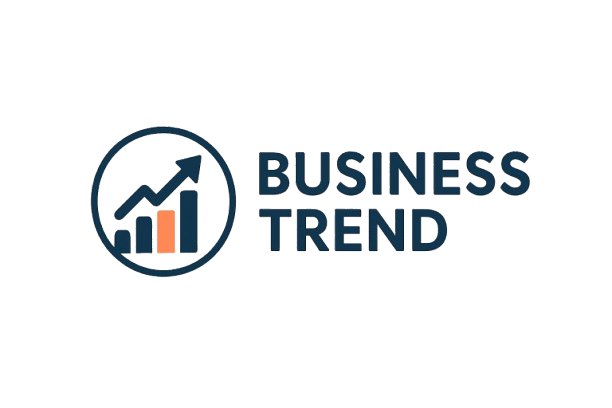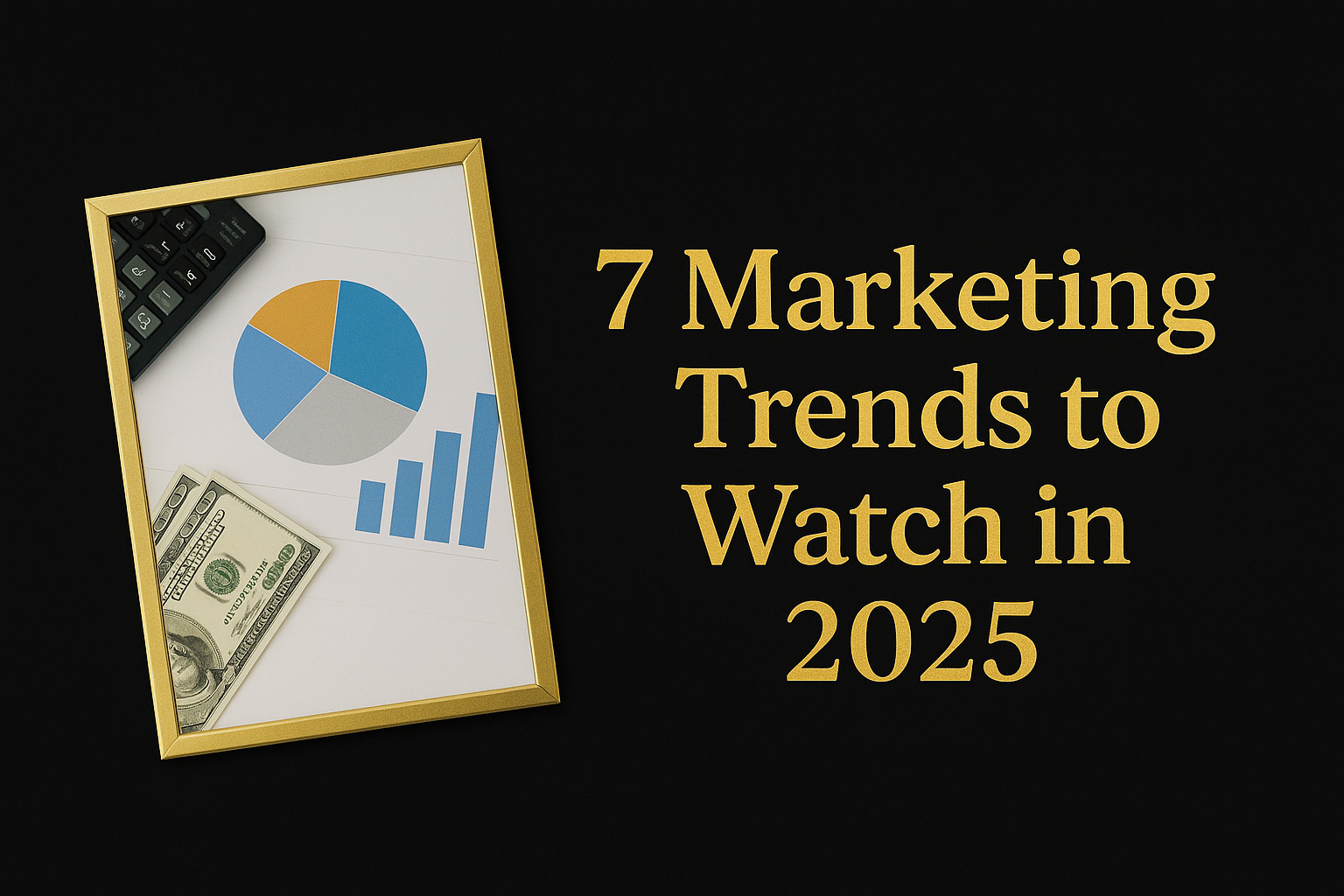Introduction
Marketing has evolved faster in the past five years than in the previous two decades combined. With AI, automation, short-form videos, and data-driven advertising dominating the digital landscape, 2025 is shaping up to be one of the most innovative years yet.
Businesses can no longer rely on outdated methods like simple social posts or traditional advertising. The competition for audience attention is fierce, and staying relevant now requires creativity, personalization, and authenticity.
In this article, we’ll explore the 7 biggest marketing trends for 2025, showing you how each can help your brand connect with modern audiences, improve conversions, and strengthen your overall market presence.
1. Artificial Intelligence in Marketing
Artificial Intelligence (AI) is no longer a futuristic concept it’s the present reality shaping how brands communicate. From automated content creation to customer insights and predictive analytics, AI has become the backbone of marketing strategies in 2025.
AI tools can now analyze massive amounts of consumer data in seconds, helping businesses understand buying behavior and create hyper-personalized campaigns. For example, AI can automatically recommend products, generate email copy, and optimize ad performance in real-time.
Marketers who embrace AI-driven platforms are able to scale faster and make smarter, evidence-based decisions. The trend isn’t about replacing creativity it’s about amplifying it with technology.
2. Personalization at Scale
Personalization has been around for years, but in 2025 it’s going to a new level. Today’s consumers expect brands to know them individually not just by name, but by preferences, habits, and emotions.
With advanced analytics and machine learning, businesses can now deliver tailored messages to each user based on browsing history, purchase behavior, and even location. Personalized recommendations, dynamic website content, and segmented email campaigns are just the beginning.
Brands that can make every customer feel recognized and valued are the ones that will dominate the market. In 2025, personalization is not optional it’s the standard.
3. Short-Form Video Dominance
The rise of TikTok, Instagram Reels, and YouTube Shorts has permanently changed the way audiences consume content. In 2025, short-form videos remain the most powerful medium for engagement.
Why short-form videos work:
-
They’re fast and engaging: People prefer content that delivers value or entertainment within seconds.
-
They increase brand visibility: Platforms prioritize short videos in their algorithms.
For brands, this means creating quick, authentic, and visually appealing clips that capture attention instantly. Whether it’s a product demo, customer testimonial, or storytelling snippet, short videos are key to winning the modern audience’s attention span.
4. Voice Search and Conversational Marketing
With the growth of smart speakers and voice assistants like Alexa, Siri, and Google Assistant, voice search optimization has become essential. By 2025, a significant portion of online searches is conducted through voice rather than typing.
Businesses need to optimize content for conversational queries people speak differently than they type. Instead of short keywords, they use natural sentences, like “What’s the best laptop for graphic design?”
Conversational marketing also extends to chatbots and AI assistants that provide 24/7 support. These bots are becoming smarter, more human-like, and capable of delivering personalized service in real-time.
The result? A smoother customer experience and faster conversions.
5. Influencer Partnerships 2.0
Influencer marketing is evolving. In 2025, it’s not just about follower counts it’s about authenticity, engagement, and niche influence. Brands are now partnering with micro and nano influencers who have smaller but highly loyal audiences.
Consumers are more likely to trust recommendations from relatable individuals than celebrities. These smaller influencers drive better ROI because their followers believe in their content’s honesty and transparency.
Moreover, influencer collaborations are expanding beyond social media. Brands are co-creating products, podcasts, and events with influencers to deliver real, lasting impact.
If done right, influencer marketing in 2025 can transform your brand into a trusted name within your target audience.
6. Sustainable and Ethical Marketing
Modern consumers care deeply about the planet and social responsibility. They’re no longer impressed by flashy ads; they want to support brands that reflect their values.
In 2025, sustainability is no longer a trend — it’s an expectation. Businesses must show genuine commitment to ethical practices, eco-friendly packaging, and community support initiatives.
Key areas of ethical marketing include:
-
Transparency: Be honest about your sourcing, pricing, and production methods.
-
Purpose-driven campaigns: Align marketing messages with causes that matter.
Sustainability not only builds trust but also strengthens emotional connections with your audience. It’s about showing that your business stands for something more than profit.
7. Immersive Brand Experiences
The final big trend shaping 2025 marketing is immersive storytelling through AR (Augmented Reality) and VR (Virtual Reality). These technologies allow customers to interact with products before buying —whether it’s trying on virtual clothes, exploring real estate in 3D, or testing furniture placement in their homes.
This shift toward experiential marketing helps brands bridge the gap between physical and digital worlds. The goal is no longer to just tell a story — it’s to let customers live it.
Immersive campaigns not only engage audiences but also create memorable experiences that boost brand loyalty.
As the hardware for AR/VR becomes more affordable and widespread, expect even small businesses to start adopting this powerful marketing strategy.
How Businesses Can Prepare for These Trends
Knowing the trends is only half the game — applying them strategically is what delivers results. To stay competitive in 2025, brands should:
-
Continuously update their marketing tools and software.
-
Train teams in data analytics and AI-driven marketing.
-
Focus on building authentic customer relationships.
-
Monitor changing audience preferences regularly.
Adapting early gives you an edge, while late adopters risk losing visibility in an overcrowded digital market.
Conclusion
The marketing world in 2025 is a blend of technology, authenticity, and human connection. Brands that adapt to AI, personalization, short-form content, and ethical values will lead the way.
While tools and trends will keep evolving, one thing remains constant: people connect with stories and emotions. Technology can amplify your reach, but authenticity keeps your audience loyal.
As we move forward, the smartest marketers will be those who combine creativity with innovation — those who can use data not just to sell, but to inspire.
Stay curious, stay adaptable, and let 2025 be the year your brand stands out for all the right reasons.


